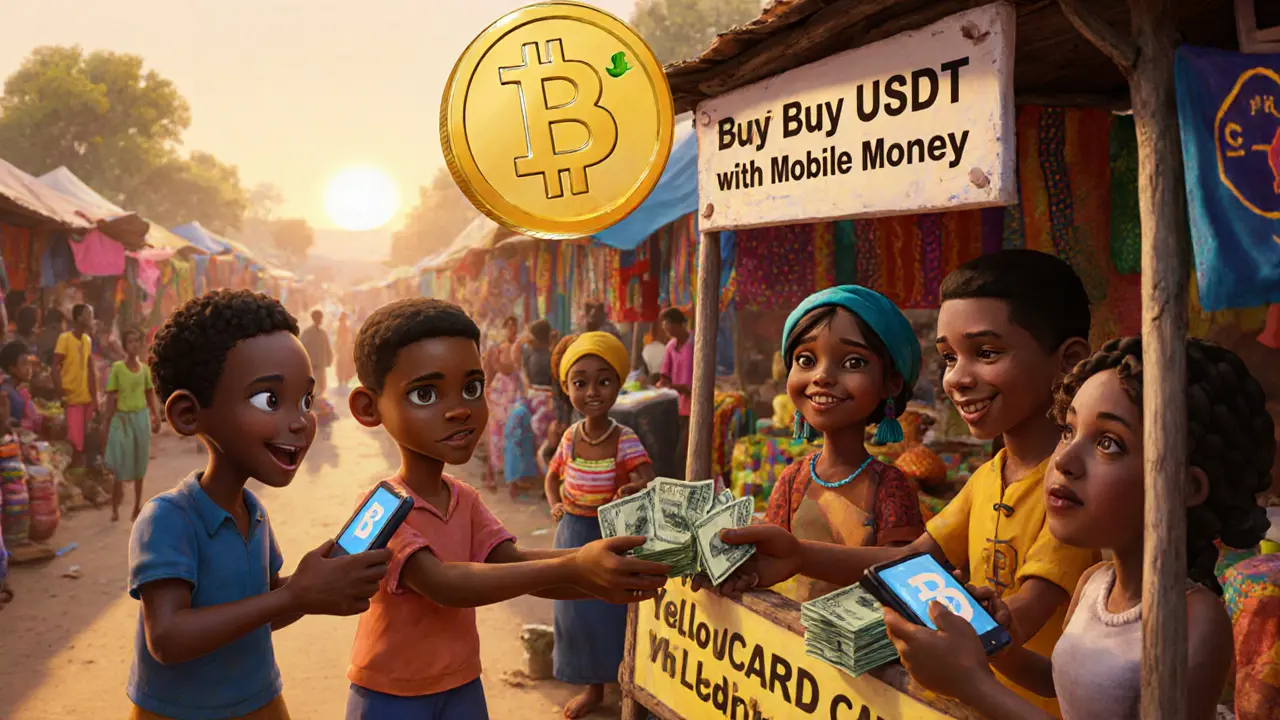Buy Crypto in Africa
When you buy crypto in Africa, you're not just trading digital assets—you're bypassing broken banking systems, high fees, and currency controls that affect millions. Also known as crypto adoption in emerging markets, this trend is driven by real people using phones and peer-to-peer networks to access money that works across borders. Unlike in the U.S. or Europe, where crypto is often a speculative investment, in Africa it’s a tool for survival, savings, and small business growth.
Many Africans use mobile money, services like M-Pesa, MTN Mobile Money, and Airtel Money that let users send cash via text message. Also known as digital wallets for the unbanked, these platforms now connect directly to crypto P2P marketplaces, letting you trade Bitcoin for airtime or local currency in minutes. This isn’t theoretical—it’s happening in Nigeria, Kenya, Ghana, and Uganda every day. You don’t need a bank account. You don’t need ID verification. You just need a phone and a trusted buyer.
But it’s not all easy. Governments are catching up. African crypto regulation, ranges from Nigeria’s strict licensing rules to Angola’s outright ban on mining. Also known as crypto crackdowns in developing economies, these policies often target large-scale operations, but everyday users still find ways to trade. Some exchanges shut down. Some payment processors block crypto deposits. But the demand never dies. People adapt. They switch to Telegram groups. They use local traders. They trade on Binance P2P, LocalBitcoins, or Paxful—platforms that don’t require KYC.
What you’ll find in the posts below isn’t a list of "best exchanges"—it’s a map of what actually works on the ground. You’ll see reviews of platforms people in Lagos and Kampala are using right now, warnings about scams targeting new users, and breakdowns of how local laws affect your ability to cash out. You’ll learn why a crypto exchange that works in South Africa might get you arrested in Egypt. You’ll see how energy shortages forced Angola to seize mining rigs—and how that changed how people trade. You’ll find real stories about people using privacy coins to protect their savings from inflation, and how airdrops meant for global users end up in the hands of African traders who need them most.
This isn’t about hype. It’s about access. If you’re trying to buy crypto in Africa, you’re not chasing a trend—you’re fighting for financial freedom. And the tools, risks, and strategies here are the ones real people are using today. What follows isn’t theory. It’s what’s working.
YellowCard Crypto Exchange Review: Africa's Leading Platform for Stablecoins and Local Payments
YellowCard is Africa's top crypto exchange for buying Bitcoin and stablecoins with mobile money and cash. With low fees, instant transfers, and 22-country coverage, it's the go-to platform for unbanked users. Learn how it compares to Binance and why it's leading Africa's crypto revolution.
